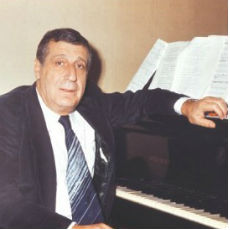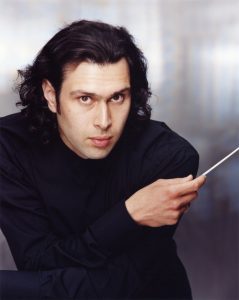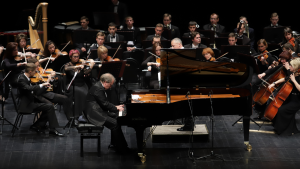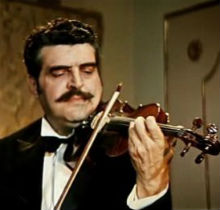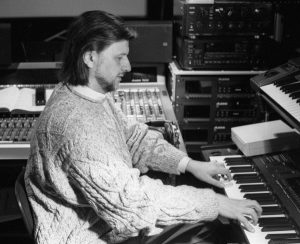RUSSIAN MAESTRO MICHAEL GLINKA
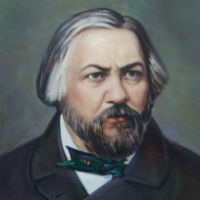 Mikhail Glinka entered the history of world music as the founder of the Russian national opera. His composer’s talent was not always approved, sometimes criticized and ridiculed, but the composer endured all the tests with honor and took a well-deserved place in the pleiad of great musicians.
Mikhail Glinka entered the history of world music as the founder of the Russian national opera. His composer’s talent was not always approved, sometimes criticized and ridiculed, but the composer endured all the tests with honor and took a well-deserved place in the pleiad of great musicians.
Polish nobleman
The homeland of Mikhail Glinka was the Smolensk Province, where in the village of Novospasskoye his family lived from the time of his great-grandfather, the Polish nobleman, who swore allegiance to the Tsar and continued military service in Russia.
Mikhail’s parents were second cousins to each other. Therefore, Glinka’s father, Ivan Nikolaevich, had to get permission from the bishop to marry a second cousin. The young people were married and lived for many years in happiness and harmony, raising nine children.
Hereditary Polish nobleman Mikhail Ivanovich Glinka was born in the estate of his parents on June 1, 1804. His father, who was a retired captain, did not spare money for the improvement of his village, for which the peasants loved him immensely. For several years, the settlement literally transformed, streets with bridges appeared in it, the park was in English style, peasant houses were whitewashed with chalk, and the mansion itself was a two-story building and had 27 luxuriously furnished rooms.
However, no rich decoration of the house did not prevent Michael from penetrating the composer Mikhail Glynkaprosty rural life, communicating with the peasants on an equal footing, understanding their problems, reading the traditions and simple folk art. According to critics of that time, the impressions of the childhood years spent in the village were reflected in the best works of Mikhail Glinka. The composer kept his autobiographical notes, in which he himself confirmed that the songs he had heard in childhood caused his deep love for Russian music. Since childhood, he learned to play the violin and piano, even then he tried to compose music, sang beautifully and also drew well.
Soon after the Patriotic War of 1812, his parents sent Mikhail to study in St. Petersburg. In the capital, the young man had the honor of meeting famous people of his time. First of all, they were Evgeny Baratynsky, Alexander Pushkin and Vasily Zhukovsky. At the institute, the curator of the Glinka course was a friend of Pushkin from the time of the Lyceum Wilhelm Kuchelbecker. A strong friendship then ensued between Mikhail Glinka and the writer and composer Vladimir Odoyevsky.
Temptation music
In those years, Mikhail Glinka realized that craving for music is not a simple hobby. He began to take private lessons from renowned teachers of the period – John Field and Carl Zeiner. composer Mikhail Glinka Glinka studied European classical music, played music in notable salons, began to try his hand at composer art. Soon his efforts were crowned with success, he appeared works in different genres. Even then, in musical circles, he knew his romances to the words of Baratynsky “Do not tempt me needlessly” and Pushkin “Do not sing, beauty, in front of me.” But the composer himself was unhappy with what he did.
In 1823, Mikhail Ivanovich went to the Caucasus, became acquainted with the music of various nations, then worked for several years in the administration of communications, and at 26 he decided to devote himself entirely to creativity and went to the cradle of musical culture, Milan.
First opera
Infused with the Italian spirit, the composer composes plays based on famous operas and writes music for instrumental ensembles. In 1833, Mikhail Glinkaon moved to Germany, where, under the leadership of Siegfried Dehn, he began to study the pages of music theory unknown to him. In Germany, he found the news of the death of his father, and Glinka immediately left for home, having already in the plans to create a national opera.
When he shared his thoughts and ideas with Vasily Zhukovsky, he suggested that he take the story about Ivan Susanin as a basis. At the same time, Mikhail Glinka made a proposal to 17-year-old Maria Ivanova (to whom he dedicated the song “I Only Know you”) in April 1835, they got married and left for the composer’s native village, where he began the future opera “Life for the Tsar”.
A year later, the work was ready, but putting it on the stage turned out to be quite difficult. The director of the imperial theaters, Alexander Gideonov, prevented this. He passed the score to the conductor Kavos, who had his own opera on a similar theme. But he acted nobly, wrote a flattering review of the work of Glinka and removed his opera from the repertoire. Here are just Gideonov refused to pay the fee to Mikhail Ivanovich for his opera.
National epic of Mikhail Glinka
Mikhail Glinka Yekaterina Kern
The premiere was a great success in November 1836. Glinka could not believe his happiness. The emperor himself has long expressed grateful words to him, and critics have called the “Life for the Tsar” a national heroic and patriotic epic.
Not without intrigue and at the premiere of the opera. One of the spectators loudly shouted that the work was worthy only for the coachmen.
